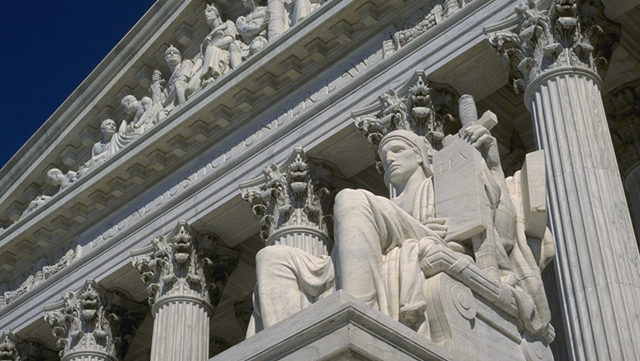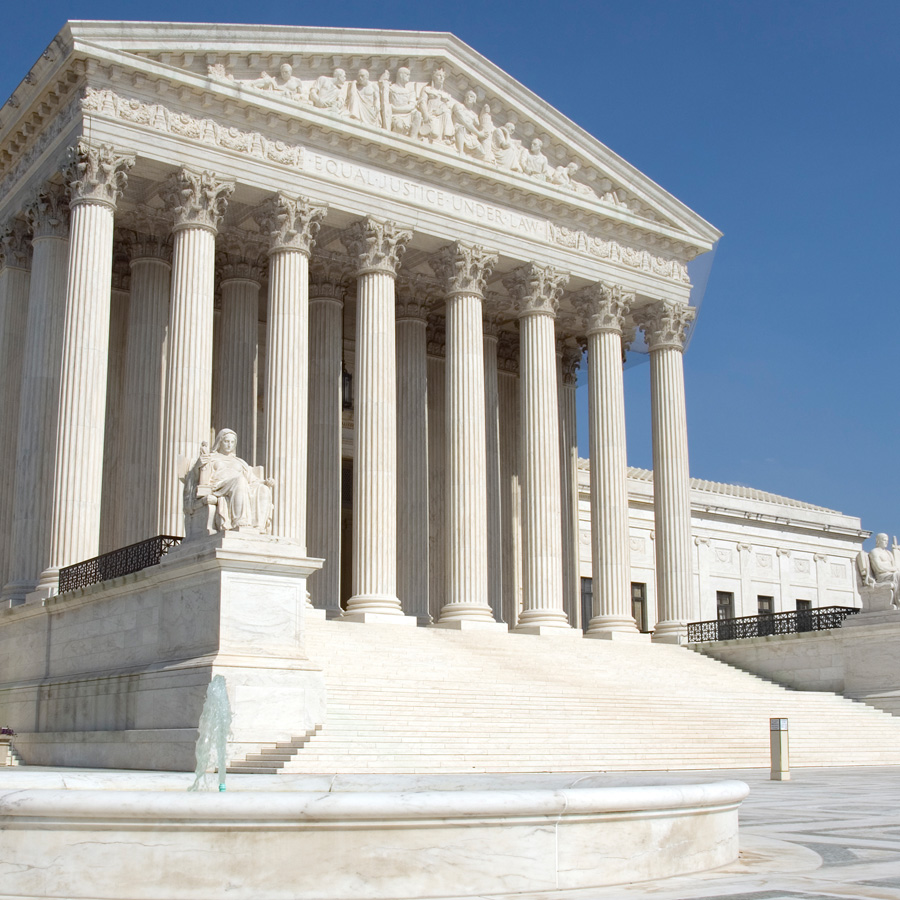Case Status: Loss
Smith v. University of Washington

In 1997, CIR filed a lawsuit against the University of Washington on behalf of several applicants rejected from its law school. Among these applicants was Katuria Smith. Smith grew up in poverty, with an alcoholic father and step-father, and struggled through high school. In spite of this, she was able to pull her life together and submit an impressive application to UW’s law school. However, because she was not a member of a preferred race, Smith’s application was denied.
While Smith’s case was pending, voters in the state of Washington passed a referendum making the use of race in university admissions illegal. However, CIR pressed on to assure that race preferences were illegal under the Constitution, and not simply state law. Although, race preferences remain illegal in the state of Washington under the recent referendum, federal judges have ruled that UW’s race preference policies did not violate the Constitution.
Denied admission on grounds of incorrect skin color
CIR’s lawsuit challenged the University of Washington’s policy of using race as a factor in determining who to admit to its law school. Under the tenure of Dean Wallace Loh, UW introduced intended to significantly boost the number of minority law students. The school met its goal: in 1994, the year Smith was rejected, the law school had increased minority enrollment from 17% in 1989 to 43%. The diversity program, as the University would later admit, involved the use of separate admissions standards and proceedures for minority applicants. Somone with Katuria Smith’s qualifications would have been immediately accepted if she had been a member of a prefered racial group.
“I ASKED THEM WHAT WOULD HAVE HAPPENED IF SHE HAD NOT REVEALED HER RACE ON HER APPLICATION. IF, CONSIDERING HER FIRST NAME, SHE HAD BEEN TAKEN FOR BLACK, WOULD SHE — GIVEN HER ACADEMIC RECORD AND CHARACTER — HAVE BEEN ADMITTED? THE DEAN SAID SHE WOULD HAVE BEEN.”
Nat Hentoff – The Washington Post
A tough background

Katuria Smith was born when her mother was 17, was reared in poverty, and dropped out of high school. From the time her parents divorced when Smith was 11, she lived “hand to mouth” and moved between twelve jobs, detailing cars, cleaning floors, and doing anything else she could get. Click here to read a Seattle-Post Intelligencer story on Katuria’s background.
“I was desperate to get out of poverty,” Smith told columnist Michelle Malkin. So when Smith was 21, she enrolled in night classes at a community college paralegal program. Holding down jobs during the day, she graduated and enrolled in the University of Washington, where she earned a business degree in 1994. With her 3.65 GPA and LSAT score of 165 (94th percentile), she fully expected to be admitted. Instead, she was rejected with no chance to appeal. Smith filed suit in 1997.
“WHEN KATURIA WAS 11, HER PARENTS DIVORCED, LEAVING HER MOTHER TO RAISE THREE GIRLS. WORKING THREE JOBS…A FEW YEARS LATER SHE MARRIED A MAN WHO… DRAINED THE FAMILY’S MEAGER RESOURCES… SMITH’S HOME WAS LOST… SMITH BOUNCED AROUND FOR A FEW YEARS, WORKING AS A COCKTAIL WAITRESS IN A STRIP JOINT, A CASHIER, AUTO DETAILER, PAINT MIXER AND CATTLE AUCTION HAND. WHEN SHE WAS 20, HER FATHER… DIED. DEEP IN DEPRESSION, SMITH DESPERATELY WANTED TO CHANGE HER LIFE.”
Seattle Post-Intelligencer
Muddying the waters
The shape of the Smith case changed in 1997 when the Washington Policy Center began a drive for a ballot initiative to end racial preferences in Washington State. Inspired by the Smith case and the columns of Nat Hentoff, the Center drafted a measure based on the succesful California Civil Rights Initiative (Proposition 209) of 1996. I-200, as the Washington measure was called, was approved by 58% of the state’s voters in 1998. As a result, UW was forced to alter its admissions policy and dismantle its system of racial preferences. Much of the work was done, but CIR pressed on to finish the job.
Other plantiffs
Katuria was joined in her case by Angela Rock, a 1995 in-state UW Law applicant who had gotten her undergraduate degree at the school. Rock was rejected from Washington but, on the merit of her 3.65 GPA and 165 LSAT, was immediately accepted by Vanderbilt, Georgetown, UCLA, and the University of Colorado. The third plaintiff was Michael Pyle, who earned a 3.15 GPA at Duke and scored a 97th percentile 168 on his LSAT. Pyle was also initially rejected by UW, but was accepted in 1999 after UW ceased to use race preferences.
CIR presses on
To ensure that race preferences were barred as a matter of Constitutional law not merely legislative fiat, CIR appealed the initial Smith ruling. CIR argued that Washington’s policy violated the “narrow tailoring” requirement that the Supreme Court laid down in the University of Michigan lawsuits CIR also argued that striking down Washington’s admissions policy would make sure that Washington could not simply go back to its old illegal policies if the legislature were to repeal I-200. Indeed, members of the state legislature regularly introduce legislation to repeal I-200.
Ninth Circuit upholds preferences
In 2005, the 9th Circuit held that Washington’s admissions policy met the Supreme Court’s narrow tailoring requirement. As a result, should Washington repeal I-200 the University of Washington could again consider the use of explicit racial preferences, subject only to the requirements of the federal Constitution.
Updates on this case

Feb 2004
Federal appeals court hears affirmative action suit against U. Washington
First big test of Supreme Court ruling on race-based admissions Washington, D.C. —Today the U.S. Court of Appeals…

Apr 2002
U. of Washington affirmative action trial begins
CIR clients get their day in court against Law School after 5-year battle Washington, D.C. – A trial to determine…

Feb 2001
Supreme Court asked to decide key affirmative action issue
Future of racial preferences at U. of Washington and across the nation at stake Washington, D.C. – The U.S.…

Jan 2001
Appeals court may rehear key affirmative action case
Future of racial preferences at U. of Washington and beyond at stake Washington, D.C. – A federal appeals court will…

Nov 2000
Legality of affirmative action at stake
Federal appeals court to decide if diversity justifies reverse discrimination Washington, D.C. – The future of affirmative action in education…
